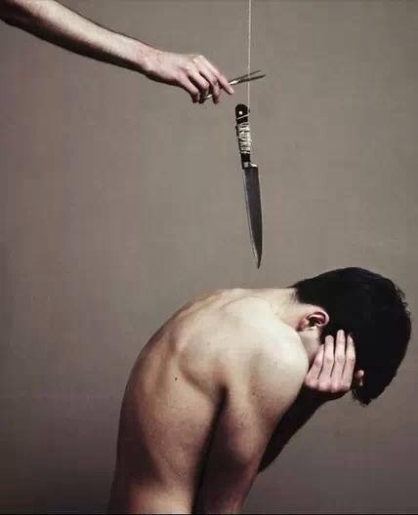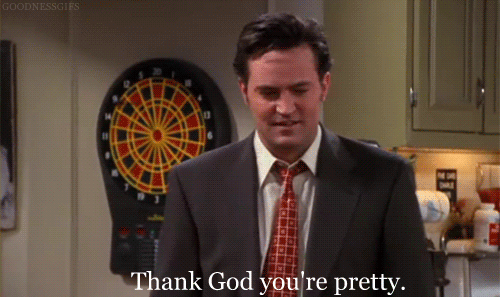We've moved on from the old material with its bad guys, mustachioed villains, red-eyed demons. Jack the Ripper, who murdered people. Team Rocket, so intent on ruining Ash's quest for more Pokemon. Swiper from Dora the Explorer. Even in the Harry Potter series, there was no question that Voldemort was evil. Though he's set apart from the flatter antagonists because his life story is actually explained, he is still the person to defeat, the person beyond redemption. But lately, things have changed. Young adult authors are beginning to employ a new technique in their writing: betrayal.
Perhaps it first started with Paradise Lost, when we saw things from Satan's point of view and realized that maybe even the most canonical of villains can be a soul crying to be saved. The idea has evolved since then, obviously. While before, villains were made from people with dark pasts and twisted ideas, nowadays authors are experimenting with friends, family, lovers. The more intimate the relationship is, the better the betrayal. A popular example would be Jace from Cassandra Clare's The Mortal Instruments. Those of us who are committed to his relationship with Clary, our protagonist, were crying for him as we watched his struggle between joining his father and being with the girl he loved. It happened again in City of Fallen Angels, except this time the puppet master was a different person. Although it was almost the same formula, people were on tenterhooks waiting, fearing what this new Jace would do. Dimitri, from Vampire Academy. We desperately grabbed onto those moments when he locked Rose up but didn't kill her, ignoring the fact that he pretty much became a crazy stalker. What about Patch, from Hush, Hush? A complete dick, to be sure, and he never made it clear whose side he was working on. But there was something strangely enticing about him, so that even as he kissed other girls and went behind Nora's back, we melted every time he showed up in her dreams or looked at her.
These situations all have something in common. The books I've chosen as examples all have love stories. Majestic, passionate love stories that easily sweep readers right along with them. These couples go through so much together, from fist fights to deaths to sex. And that's what makes the betrayal cut so much deeper. How can someone capable of so much love end up doing such horrible things? And that's exactly what makes them so redeemable. All these guys are amazing. Sweet, strong, utterly masculine, yet with such disturbing pasts that our pity is roused. It's fun. It is undeniably fun to take an inspiring love story and twist it to prove how far this frail notion of love can stretch. Why do you think there are so many retellings of epic love stories? Now Romeo wants to assassinate Juliet (Juliet Immortal) and the Big Bad Wolf is one sexy motherfucker (Scarlet). So far, the couples come back together stronger than ever.
YA is a rapidly evolving genre. At some point, readers got tired of reading about one person battling the forces of evil. So authors decided to give them a mate, and the two of them could battle while exploring their sexual attention. When that got old, too, authors decided, it's obviously not enough for the protagonist to be battling some blatantly evil characters. Why not have her fight someone she loves too? It's a great turn of events that suddenly adds so many pages to a story. Not only does she now have to defeat the forces of evil, the protagonist must also convert her man back to humanity without killing him. It's easy to read about someone murdering a bad guy because, hey, he deserved it, right? But never would you condone the murder of someone you've seen in his moments of weakness and passion, the way we saw Jace, Dimitri, and countless others. The best authors insert a measure of humanity into their characters that it cripples us so that we can't think clearly. Of course he's evil. Of course he kills people. Of course he has blood on his hands. But I can't let him die, I just can't.
And so this is an interesting plot development. At its best, we're thrown onto an emotional rollercoaster where we can never be quite sure as to someone's salvation. At its worst, it's a twist and another way for the story to go. Betrayal adds another layer to stories so that they're not so black and white anymore, and that's the reader's worst fear and the author's greatest advantage. A story where the boundaries are smeared and characters' intentions are never quite transparent is a story that retains its mystery and encourages people to keep reading. It's also an opportunity for there to be immense character development. I know I'm hoping to see how Alina is changed after the battle in Siege & Storm. I'm not saying that somebody must be stabbed in the back for a story to be a success. Just look how interesting Harry Potter is, even when we know all along who he's going against. In no way do I believe Hush, Hush is a work of art, and that's probably because it overdoses completely on making Patch a confusing combination of good and evil. If you ask me, I'm still waiting for the day that an author decides to take a fan favorite and keep him evil forever.








